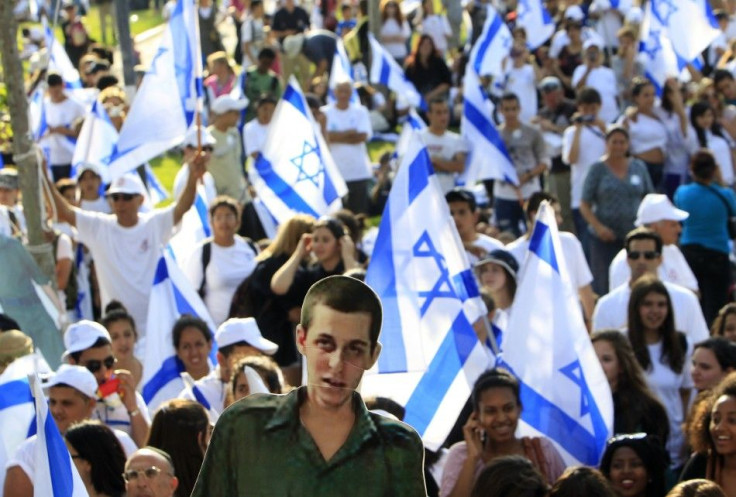Israelis Torn Over Gilad Shalit Prisoner Exchange

Last week, Israel rejoiced at the news that captured soldier Gilad Shalit would be released from a Hamas prison after five years. But now, many Israelis are angered by the lopsidedness of the prisoner exchange, in which Israel will send home 1,027 Palestinian detainees.
Families of Israelis killed in terrorist attacks allegedly perpetrated by the very people being released are now petitioning the country's Supreme Court to block the exchange. Israel has publicized the names of the Palestinians that could be released as early as this week, some of whom were involved in the Second Intifada.
The goal of this petition is to stop the madness. We are very afraid that the terror will again rule the streets -- that they will murder us again in restaurants, in cafes, at night in bed, at kindergartens and in schools, Meir Schijveschuurder, whose parents and siblings were killed in a 2001 bombing of a Sbarro pizza restaurant, told CNN.
As part of the deal, Israel agreed to release 477 prisoners of Hamas' choosing on Tuesday. The rest will be at Israel's discretion and set free in about two months time. Hamas did not consult or inform any Palestinian prisoners during the talks, according to Xinhua, but tried to convince Israel to release 300 people on death row.
The parents of Shilat have addressed the petition, expressing a concern for the families of victims, but still eager to get their son back.
We understand the hearts of the bereaved families -- we are a bereaved family as well, Shalit's mother Aviva commented Sunday, CNN reported. But in spite of this any delay in the deal might endanger Gilad's life. It's a life-saving matter. I request that when my son returns home you will help us help in his recovery.
The deal was brokered last Tuesday by Prime Minister Benjamin Netanyahu and Hamas leadership, with the help of Egyptian mediators.
You were in my thoughts during the many uncertainties that have accompanied me in the negotiations, Netanyahu said in a statement, addressing the families of terror victims.
The decision regarding the release of Gilad Shalit is one of the hardest I have taken ... I understand the difficulty in digesting that these villains who committed these crimes against your loved ones will not be paying the full price that they deserve to.
Staff Sargent Gilad Shalit was captured in 2006, when he was just 20 years old, crossing through the Kerem Shalom kibbutz on the Gaza Strip-Israel border.
Palestinian families are equally torn over the news. The families of those who were imprisoned are thrilled to see loved ones come.
Of course I am very happy but at the same time I am sad because my brother is getting out of jail without finding my mother [alive]. Also my youngest brother is still in the Israeli jail. This is of course painful, but I'm still happy in spite of the occupation, and despite the occupation we will be happy and celebrate, Hanan Barghout, the sister of a soon to be free prisoner, told BBC.
Others showed less remorse.
I was waiting for the deal of Shalit to be concluded, hour by hour, minute by minute, second by second. Finally, thank God, this deal included my husband. I salute the resistance and everybody who contributed to the deal, said Samira Barghouti, whose husband has been in jail for 34 years.
Yet, not all Palestinians were as ecstatic. The Palestinian National Authority was critical of Hamas' deal.
The agreement secured the release of prisoners who still have months before they complete their sentences and neglected the prisoners who have been jailed for more than a quarter of a century, P.N.A. Minister of Prisoner Affairs Eissa Qaraqe noted, according to Xinhua.
© Copyright IBTimes 2025. All rights reserved.





















